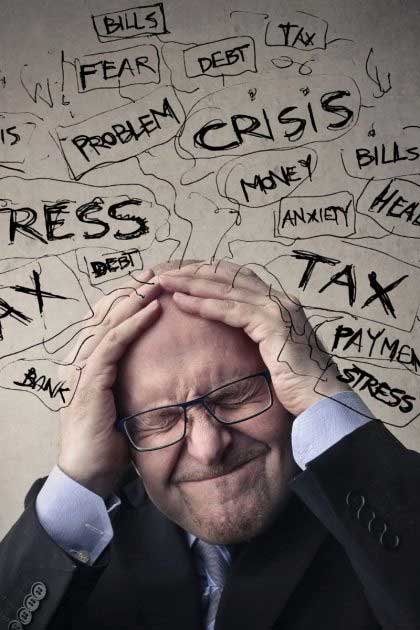RHEUMATID ARTHRITIS FLARE: INTRODUCTION
Stressed much about rheumatoid arthritis? Stressed out about stress? It can feel downright challenging to hear all the news about how bad this is for you and your health. You want to address it but when you try, something you don’t expect happens… and boom, you’re even more stressed out!
Can stress trigger a rheumatoid arthritis flare? If you’ve had RA for a while you already know the answer to this question. Stress and RA go together like the 4th of July and fireworks or fries and ketchup — or mayo if you prefer. Right? But, is there really any hard-hitting evidence of a connection between these two? Read on to find out!

THE EVIDENCE
Stress can cause rheumatoid arthritis and rheumatoid arthritis can cause stress. A PLoS One study on people with rheumatoid arthritis identified stress as a trigger for flare-ups. Overwhelm triggers the immune system to release cytokines. Cytokines are chemicals crucial to the body’s inflammatory response, however, the more stress you’re exposed to the greater the inflammation which may lead to a RA flare.
A 2017 study concluded that psychological stress may lead to rheumatoid flares. 86% of study participants reported increased joint pain and stiffness when under psychological stress.
A recent analysis of 16 studies found stress tends to worsen RA symptoms and those experiencing trauma are more likely to develop rheumatoid disease. Although many of these studies were small, the researchers did conclude there appears to be a correlation between stress and the risk of developing RA.

THE GOOD NEWS ABOUT STRESS
Our bodies are designed to handle stress. There is a system in each of us for the identification and management of stress. Your body sends clear signals as stress increases. You come equipped with organs, muscles, and cellular functions to address stress. And you can feed these with the nutrients they need to work better, more efficiently, and effectively to address stress.
More good news? You don’t have to nor should you attempt to remove all stress. In fact, it’s actually impossible. And some stress actually helps us meet our goals and even function better. Ahhhhh. Breathing a bit better right now than maybe when you first started reading this article? Good. Breathing is one of the most efficient ways to address your stress — and it doesn’t cost a thing!
I highly recommend the 4-7-8 breathing technique which I use myself every single day!
- Start inhaling and exhaling with the goal of each breath having a longer exhale than inhale. See if your exhale can become twice as long as your inhale. Do at least 8-10 breath cycles.
- Close your mouth and inhale through your nose for 4, then hold for 7, open your mouth and exhale emphatically for 8. Repeat at least 8-10 cycles.
- When you breathe in, breathe in through your nose into your belly until it’s “full” then exhale completely saying HA.

STRESS ASSESSMENT
Before we get into the how of addressing stress, let’s start with the what and when. Specifically, let’s look at how to identify when you need to put your focus on addressing stress because it is negatively impacting your health or goals at that moment.
Your body has its own system for identifying and handling stress. It should come as no surprise that it’ll send you signals when stress is happening. Therefore, the first part of a stress assessment recognizes these messages ASAP!
SIGNS YOUR STRESS IS ELEVATED
Wondering how to know when your stress is in overdrive? Pay attention to any of the following signs:
- Anxiety
- Elevated heart rate
- Cold, clammy skin
- Constipation
- Diarrhea
- Racing thoughts
- Inability to focus
- Irritated eyes
- Difficulty breathing
- Poor sleep
- Indigestion
- Sweet cravings
- Exhaustion — even after a good night’s sleep!

STRESS CHECK-IN
The second part of stress assessment is turning it into a habit. Making regular times throughout the day to check in on your stress provides a needed backup to recognizing stress signals the body is sending. Over time, this habit helps you avoid spending too much time ian elevated stress state.
WHEN TO DO A STRESS CHECK-IN
Optimal stress assessment includes identifying 3 times in your day to regularly check in on your stress. For example:
- On waking in the morning.
- Mid-afternoon before lunch or when you may experience energy shifts like around 2-3 pm.
- At bedtime
Do 3 stress check-ins daily feel a little stressful? A starter stress assessment includes one check-in at any point in your day. Ideally, you choose a time when you are suspecting elevated stress or become aware that your body is sending you a stressed-out signal.
HOW TO DO A STRESS CHECK-IN
1. Stop doing other things.
2. Answer the following questions — On a scale of 1-10 where 1 is the least amount of stress and 10 is the highest, where would you rate your stress? Is your body sending any signals that you’re at an elevated stress level?
WHEN TO ADDRESS STRESS
• If your stress check-in revealed that you are greater than 6 on the stress scale, it’s essential that you STOP and address your stress until it is a 6 or less.
• If your stress check-in revealed that you are a 5-6 on the stress scale, it’s a good idea that you take action to address your stress until it is less than a 5.
• If your body is sending you any signals that it is in an elevated stress state, it is recommended that you proceed to address your stress until the signal/ symptom lessens.
CONCLUSION
Although there aren’t many studies out there with hard evidence of the stress and RA connection, several small studies confirm a relationship between stress and RA flares.
By doing stress check-ins and taking actions to address stress, you will be actively reducing the negative impact of stress on your health. That may be plenty to handle right now. Stay tuned for my next post for tips on stress prevention and how to better address the overwhelming stress in your life.
I invite you to download my free guide on How to Assess and Address Stress Better to help you on your journey. Please feel free to reach out to me if you have any questions or need any help.

